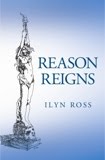I dream that music would be put to exalted words by or about beau ideals to regenerate interest in their principles. I conceptualized The Pursuit of Happiness Album. This is the 7th song:
All Honor to Thomas Jefferson
Abraham Lincoln extolled:
"The principles of Jefferson
Are the definitions and axioms of free society…
All honor to Jefferson - to the man,
Who in the concrete pressure of a struggle
For national independence by a single people,
Had the coolness, forecast, and sagacity
To introduce into a merely revolutionary document
An abstract truth, applicable to all men and all times,
And so embalm it there that to-day and in all coming days
It shall be a rebuke and a stumbling-block
To the very harbingers of reappearing tyranny and oppression.”
"I have never had a feeling politically that did not spring
From the sentiments embodied in the Declaration of Independence."
Ayn Rand said, “Definitions are the guardians of rationality,
The first line of defense against the chaos of mental disintegration…”
Axioms are perceptual self-evidencies.
They are the starting points of cognition, on which all proofs depend.
Axiomatic concepts are the foundation of objectivity.
Ayn Rand’s most admired Founder is Thomas Jefferson.
She worshipped, "If it is ever proper for men to kneel,
We should kneel when we read the Declaration of Independence…
Probably the greatest document in human history,
Both philosophically and literarily."
The author of the Declaration of Independence,
The Father of religious freedom,
The advocate of the Bill of Rights,
The President who abolished the slave trade –
Slavery was obtruded on the Colonies by King George III.
Jefferson inherited slaves - it was against the law to free them.
When it was permitted for the self-supporting,
Freed slaves must leave the State within a year.
In 1769: Chosen for the first time to be a member of a legislature,
Thomas Jefferson made one effort in the House of Burgesses
For the permission of the emancipation of slaves,
But was rejected.
In 1770: As a lawyer, Thomas Jefferson defended a slave,
Saying: under the law of nature, “we are all born free.”
In 1776: He strongly condemned slavery
In his draft of the Declaration of Independence.
In 1778: The legislature passed a bill he proposed
To ban further importation of slaves into Virginia.
In 1784: His draft of what became the Northwest Ordinance
Stipulated that "there shall be neither slavery nor involuntary servitude"
In any of the new states admitted to the Union from the Northwest Territory.
In 1806: President Jefferson requested Congress
To ban all slave importation to the US.
In 1807: President Jefferson signed a bill
Abolishing the slave trade –
On March 3, 1807, as President of the USA,
Thomas Jefferson signed a bill
Making slave importation
Illegal in the United States.
Jefferson successfully abolished primogeniture in Virginia,
The rule by which the first born son inherited all the land.
His December 20, 1787 letter to James Madison
Contains objections to key parts of the new Federal Constitution.
Primarily, Jefferson noted the absence of a bill of rights…
"Rightful liberty is unobstructed action according to our will
Within limits drawn around us by the equal rights of others.
I do not add 'within the limits of the law'
Because law is often but the tyrant's will,
And always so when it violates the rights of the individual."
"A wise and frugal Government,
Which shall restrain men from injuring one another,
Shall leave them otherwise free to regulate
Their own pursuits of industry and improvement,
And shall not take from the mouth of labor the bread it has earned.
This is the sum of good government."
"The first principle of association –
The guarantee to every one
Of a free exercise of his industry
And the fruits acquired by it."
While abolishing ALL excise taxes
Including the whiskey tax
In the first year of his first presidency,
While engaging in the Barbary War
Within two months of his first presidency,
And then spending $15 million
In the Louisiana Purchase
To double the then size of the USA,
Jefferson reduced the national debt
From $83 million to $57 million.
Thomas Jefferson said every word in the Constitution
Is subsidiary only to the execution
Of the principles enshrined in the Declaration of Independence:
First: Equal Inherent Inalienable Rights,
Second: The only proper function of law and of government
Is "to secure these rights."
Abraham Lincoln extolled:
"The principles of Jefferson
Are the definitions and axioms of free society…
All honor to Jefferson…”
Wednesday, September 22, 2010
Subscribe to:
Post Comments (Atom)


5 comments:
"I predict future happiness for Americans if they can prevent the government from wasting the labors of the people under the pretense of taking care of them." - Thomas Jefferson
"The principles of Jefferson
Are the definitions & axioms of free society…
All honor to Jefferson... who...
Had the coolness, forecast, & sagacity
To introduce... An abstract truth, applicable to all men & all times,
And so embalm it there that today & in all coming days
It shall be a rebuke & a stumbling-block
To the very harbingers of reappearing tyranny & oppression.” - AL
http://www.youtube.com/watch?v=yAgkV0y7Njg&feature=share
"Mr. Jefferson, ... who was, is, and perhaps will continue to be, the most distinguished politician of our history..." - Abraham Lincoln
http://books.google.com/books?id=XufSf2ffzKsC&pg=PT365&lpg=PT365&dq=Abraham+Lincoln+called+Jefferson+%22the+most+distinguished+politician+in+our+history&source=bl&ots=yFfUK0vG_-&sig=yTXPi1SUj9O_2pmakmWyLDOIUM0&hl=en#v=onepage&q=Abraham%20Lincoln%20called%20Jefferson%20%22the%20most%20distinguished%20politician%20in%20our%20history&f=false
http://political-economy.com/thomas-jefferson-on-taxes/
The 1798 property tax raised
approximately $2 million over the next three years. The federal land tax continued to be
collected until 1802, when the Republicans took control of the executive and legislative
branches. Newly elected Republican President Thomas Jefferson abolished all internal taxes,
including the still controversial whiskey excise tax and the land tax.
http://www.gwu.edu/~gwipp/papers/wp027.pdf
Post a Comment